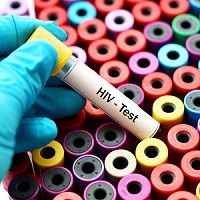Article
HIV Home-Test Kits Show Promise For Boosted Testing Numbers
Author(s):
The appeal of home testing kits for HIV has experts planning a pilot program to roll them out in highly impacted areas.

Making HIV testing as accessible as drug store pregnancy tests may be the way of the future.
A recent study in New Orleans showed that 86% of heterosexuals surveyed would use a mail order, home-based test kit, and in Los Angeles, HIV experts have been experimenting with alternative methods of distributing the self-administered kits. The study found that not only would a high proportion of heterosexuals use a home-based test kit, but that 99% of the respondents said that they would seek treatment if they tested positive.
The study, conducted by the Louisiana State University (LSU) Health New Orleans School of Public Health, stated that 1 of the best ways to overcome barriers to universal HIV testing would be at-home test kits, as they “[create] an alternative environment outside hospitals, clinics, community-based organizations, pharmacies, and outreach events for individuals to test,” the study said.
Government and private efforts to reduce the impact of the HIV/AIDS epidemic have targeted universal testing as a key to reaching their goals. The study noted that in 2014, heterosexual activity accounted for 24% of new infections in the US.
“Our findings demonstrate that home-based testing could be an effective means to reach some heterosexuals who have never been tested before,” lead researcher William T. Robinson, PhD, a biostatistician at the Louisiana Office of Public Health and an associate professor at the LSU Health New Orleans School of Public Health, said in a statement.
The survey was conducted among 470 heterosexuals who were at least 18 years old, had reported having sex with a partner of the opposite sex in the last year, and lived in the New Orleans metropolitan area. Robinson told MD Magazine that his team couldn’t check back with the study’s respondents because they were anonymous.
“We are planning a pilot project to provide home based tests to people living in highly impacted neighborhoods, however,” Robinson said. “Hopefully, this will increase testing among people who either haven’t tested or don’t test as often as recommended by increasing availability of testing options, particularly among populations of people at risk that may not have been targeted or prioritized by previous HIV prevention efforts.”
The LSU study on the acceptability of home testing is important because it “verifies and validates the intent of an important group of heterosexuals in the southeastern United States,” where there has been a high incidence of HIV, Jeffrey Klausner MD, MPH, a professor of medicine and infectious disease at UCLA’s Geffen School of Medicine, told MD Magazine.
Klausner said that he and colleagues have been conducting research on the efficacy of distributing home test kits in vending machines in sex clubs. They also offered free kits on dating websites. Within a few weeks they had collected “hundreds and hundreds of tests and 4% were infected,” he added.
Because of the roughly $50 cost of the kits, there is a need for some home testing to be subsidized by health departments and other resources, Klausner explained, saying, “It really is the wave of the future and we’ve got to get the health departments on board.”
The study was published online in the Journal of Acquired Immune Deficiency Syndrome.
Related Coverage
CDC Vaccine Rates Rise, But Not Enough, in Adolescents
FDA Committee to Review Safety of Hydrocodone, Codeine for Children
Baby Boomers Increase HCV Screenings, Treatment When Alert Added to Health Records




